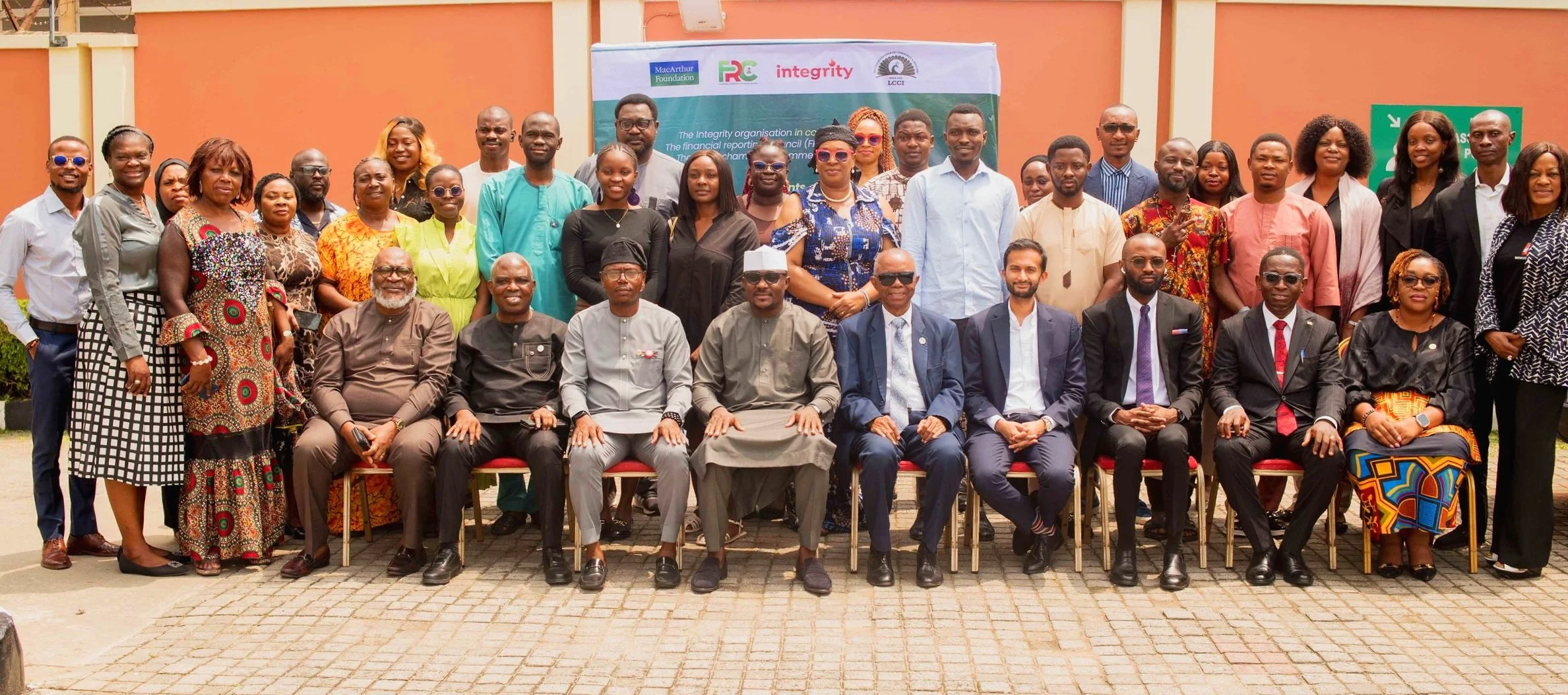Thriving in Tough Times: FRC and LCCI Lead Dialogue on Corporate Governance for Nigerian MSMEs
On Wednesday, July 24, 2025, the Financial Reporting Council of Nigeria (FRC), the Lagos Chamber of Commerce and Industry (LCCI) and Integrity Organisation hosted a multi-stakeholder dialogue on corporate governance for MSMEs. Held at the LCCI Conference & Exhibition Centre in Ikeja, Lagos, the event was themed “Thriving in Tough Times: Governance Certification as a Key Strategy for MSME Success.” The convening sought to promote the SME Corporate Governance Guidelines (SME‑CGG 2024) as a viable tool for structural business development and to deepen cross‑sector commitment to strengthening the resilience of Nigeria’s micro, small, and medium enterprises (MSMEs) through practical governance solutions.
The dialogue builds on the foundation laid in May 2024, when the FRC launched the SME Corporate Governance Guidelines (SME‑CGG). For new stakeholders, the SME‑CGG is a simplified governance tool designed to help small businesses embed structures that promote accountability, transparency, ethical behaviour, and long‑term viability. Tailored specifically to Nigeria’s MSME landscape, the guidelines distill core corporate governance principles into actionable practices, focusing on board oversight, financial recordkeeping, responsible leadership, succession planning, and more. Ultimately, the SME‑CGG aims to demystify governance for entrepreneurs and foster enterprise systems that investors, regulators, and consumers can trust.
As Nigeria seeks inclusive and sustainable economic growth, MSMEs remain central to job creation and national productivity. According to the National Bureau of Statistics (NBS), Nigeria’s MSMEs account for over 80% of employment and contribute nearly 50% to the GDP. With over 40 million MSMEs navigating structural challenges, ranging from poor recordkeeping to limited access to credit, it has become imperative to equip them with globally aligned practices that promote transparency, efficiency, and scalability. Strengthening these enterprises directly supports President Bola Ahmed Tinubu’s renewed hope agenda, which prioritises inclusive economic empowerment.
Integrity Organisation’s collaboration with the LCCI over the past year has helped translate the SME-CGG from policy into practice. Through capacity-building workshops, outreach efforts, and sector consultations, the initiative has supported over 100 MSMEs in adopting fit-for-purpose governance structures. The workshops were specifically designed to help small businesses understand eight core strategies needed to survive Nigeria’s changing business landscape, covering areas such as ethical decision-making, internal controls, legal compliance, succession planning, and business continuity.
This next phase in the journey, a partnership between the FRC and the Lagos Chamber of Commerce and Industry (LCCI), marks a critical milestone in advancing governance-driven enterprise development. By leveraging LCCI’s expansive network of entrepreneurs and industry players, the SME-CGG is positioned to reach thousands of MSMEs across Nigeria. The collaboration enhances awareness and uptake of the certification tool, helping more businesses embed governance structures that build investor confidence, improve operational resilience, and unlock growth opportunities. It also creates a platform for continued dialogue between regulators and the private sector, ensuring the SME-CGG remains practical, responsive, and scalable.
We extend our sincere appreciation to all the participants, speakers, and partners who contributed to the conference's success. Your engagement reflects a growing commitment to governance-driven enterprise development in Nigeria. As we move forward, we invite public and private sector stakeholders, including development partners, regulatory bodies, and financial institutions, to join us in strengthening the foundations of Nigeria’s business landscape.



